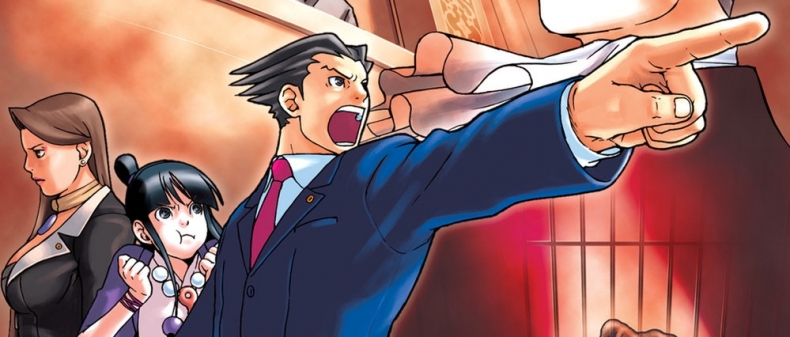
Video games rip each other off, you say? Is every virtual entry in every digital saga not a true original? Admittedly, who can imagine a world where Grand Theft Auto III didn’t popularize urban sandbox polygon shooting sprees, Angry Birds didn’t introduce a genre you can play half-asleep and Super gosh darn Mario hadn’t opened the doors to wide, glossy eyed cartoon heroes. Video games have a foundation of derivatives, and while players have rolled their eyes or even embraced it in the good times, the industry has changed significantly in the last few years. Victims of pixilated idea theft are no longer limited to massive studios that can brush them off, and the consequences of losing a concept to someone without permission can be devastating. Entertainment law for film, music and television have legal routines to deal with infringements. The level of law for games is a grey zone.
When I asked Emmanuel Evdemon, an entertainment lawyer, if video games and law is still a bit like the Wild West, Evdemon replied, “yee-haw.” Evdemon has been practicing in entertainment law since 2005, and unlike most of his peers, the majority of his work circulates on video games and digital media. Specific legal aid for video game professionals, Evdemon says, is exceptionally rare to come by.
“It is (the wild west),” says Evdemon, “Our whole copyright act finally has been revised to account for some changes, but just look at society in general. Twenty years ago, we used to make a mix tape… share our media and share our experiences and what we liked one-to-one. That’s not the case anymore. When we like something, we Pinterest that, we Instagram it, we share it with everyone on Facebook and Twitter and everyone has access to it.”
Evdemon was a guest lecturer at the International Game Developers Association (IGDA), Toronto Branch, at their monthly meeting at Metro Hall. He was dressed in a black suit jacket and visible Storm Trooper t-shirt. Evdemon was blown away by the promotional graphic, a photoshopped an image of him to look like heroic defence attorney Phoenix Wright from Capcom’s Ace Attorney games. “That rocks,” said Evdemon of the image, “I think I only wore that red tie once.”
That evening, Evdemon wanted to talk to the local gaming community about the law, copyright, ownership, protecting your concepts in a sharing-centric world and the dangerous road ahead for small studios. Evdemon apologized that a legal chat may be boring, and he’ll try to liven it up, but, “you have to go to a doctor for shots before you go on vacation, you should go to a lawyer before getting into this business.”
In the realm of games there are a lot of piggybacked ideas, but in the past few years the scale and distribution of games have led to some disheartening conflicts. Many smart phone games – iOS projects – don’t take very long for larger companies to churn out, but can be months to years of labour for a small studio. Asking the platform, say iTunes, to take down imitators may seem like the logical step, but it could backfire if the enemy party decides to bite back and take you to court. Truth is, taking legal action after rarely pays for the damages done, and it’s much sounder to protect your ideas going in.
The experiences of Vlambeer, a Dutch studio founded in 2010, served as Evdemon’s main tale of terror for the evening. Vlambeer’s Ridiculous Fishing was originally published as a free flash game online. Delighted by the reception, the team later pursued turning it into a commercial iOS release. Out of the blue, and months before they were ready to launch, a trailer popped up for Gamenauts’ Ninja Fishing, dubiously mimicking Ridiculous Fishing, just with a more generic, greeting card cartoon facade and superfluous ninjas. Twitter exploded over the situation, Gamenauts tried to save face by offering Vlambeer special thanks in the credits, and later a slice of profit. Vlambeer instead asked that they just hold off on their launch so the two games could just compete for the audience. In a manner eerily similar to the conclusion of The Watchmen, Gamenauts delivered the grim news that Ninja Fishing had already gone live. Work on the iOS version of Ridiculous Fishing came to the halt, as the team became depressed about bothering with the project while Ninja Fishing was showered with sales. As obvious as the facelift was, did Vlambeer have a case? No, because copyright and media law hasn’t fully adapted for the age of games.
Ridiculous Fishing, left, and Ninja FishingRidiculous Fishing was not copyrighted, and even if it was, as Evdemon explains, only an expression of an idea can be copyrighted, not the idea itself. As heinously similar as they played, the two games “looked” different. There does not exist a way to copyright gameplay, and it was the gameplay that was lifted, not visuals.
Intellectual property ownership for games in general is another hardship, Evdemon points out. Often it is something that comes into conflict with second party mentality. For many game makers, owning your IPs is a high priority. Evdemon elaborated a case where Sony requested that Playdead hand over their IP in order to release a game on PlayStation Network. Playdead refused, and found a more agreeable deal with Microsoft. Launching on Xbox Live Market first, the game, Limbo, sold very well, and eventually did make it on to PSN well after hype had died down. Sony missed out.
Evdemon asked if anyone in the room had worked on a game tied to a game or TV series. About a dozen hands reach up. When Evdemon asked if they had to wrestle with IP rights, there is a tide of groans. TV and film studios, it seems, are paranoid about keeping IP in their own camp, but neglect to understand that, with games, there’s more than just characters and story being worked with. It appears the legal works are a work in progress, and most parties outside of games have many lessons to learn.
More questions are lobbed at Evdemon about the place for patents and the legality of on-disc content that needs to be paid to be unlocked. Evdemon didn’t have firm answers to every inquiry, but he asks those left unsatisfied to email him, and his reply would be free of charge. He also became a sponsor of the IGDA, expressed by donating a two-hour legal session that will be raffled off.
“The indie development community is amazing in Toronto,” says Evdemon, “it’s full of little shops and individuals, and they don’t necessarily have the resources to go out and find lawyers and council and get this information elsewhere. I do my very best to contribute to the community, because it is a wicked awesome community.”
Emmanuel Evdemon hopes he didn’t sound like an advertisement all night, but he does hope his discussion taught these game makers, especially the smallest, a key lesson. They should seek out legal aid, himself or otherwise, to protect their ideas and learn how to navigate the fuzzy entertainment laws on games. Finding a flood of online hype to your tiny game’s trailer is exciting, but the thrill comes with potential danger of plagiarists. As for the visual Ace Attorney comparison, Evdemon admits he enjoys the game series even though he isn’t very good at them. That shouldn’t be too concerning, I doubt calling a parrot to the stand is kosher in the courtroom anyways. Though, I could be wrong, the law can be pretty fuzzy.
____
Zack Kotzer is a freelance nerd in Toronto, and the assistant editor of Steel Bananas. Tweet him, if you dare @KingFranknstein.
For more, follow us on Twitter at @TorontoStandard and subscribe to our newsletter.














